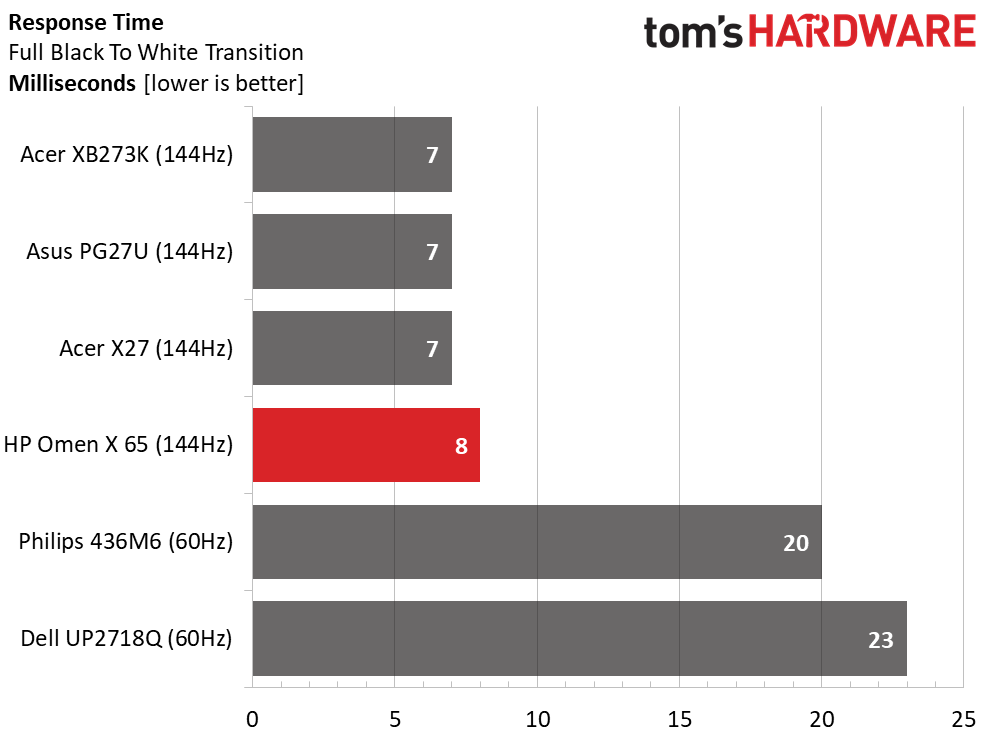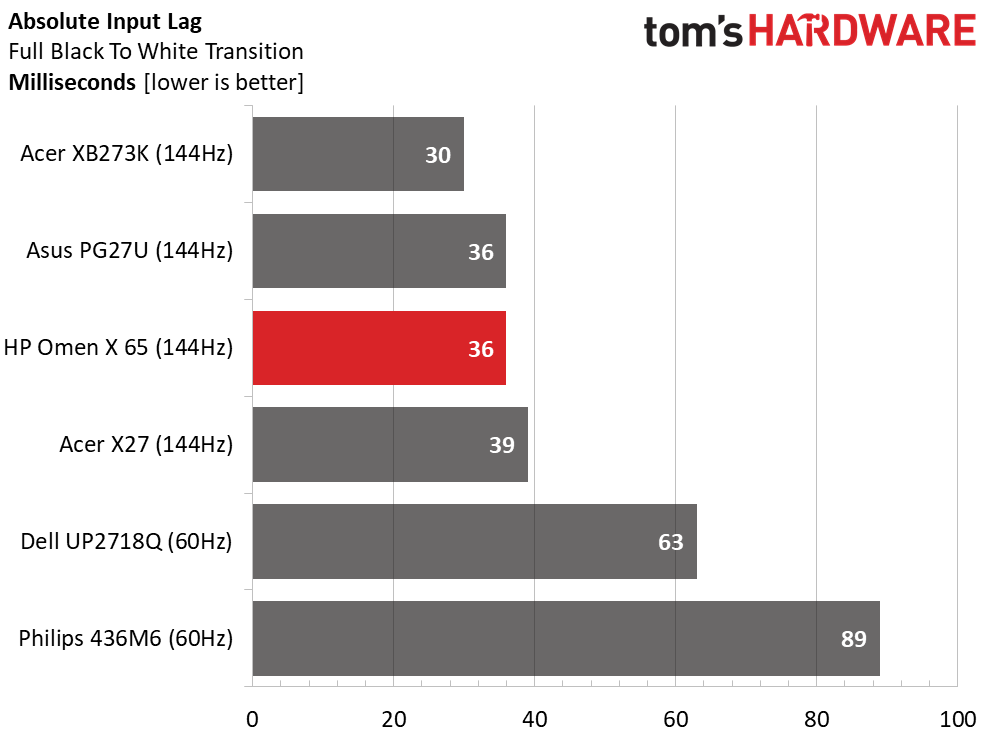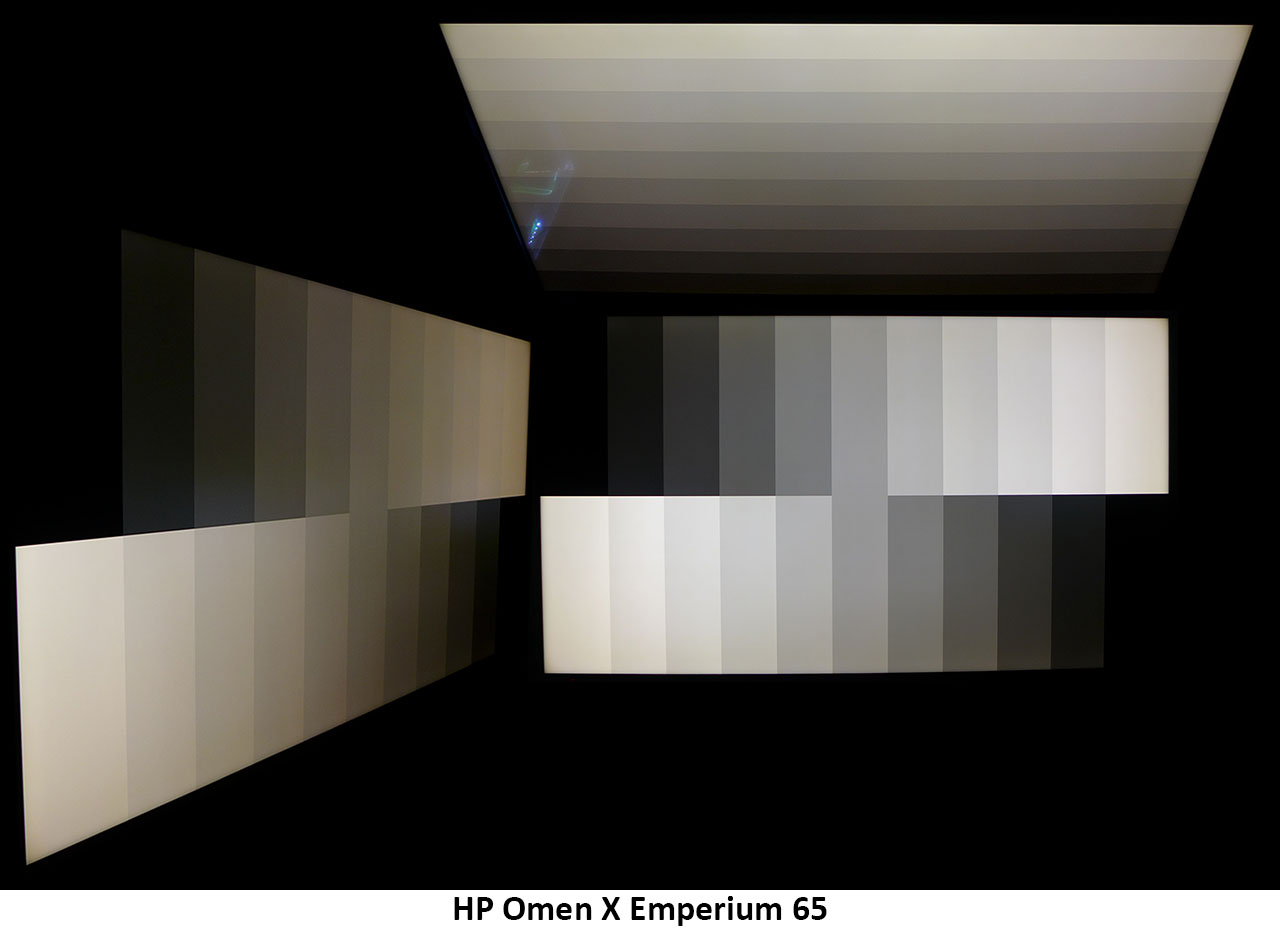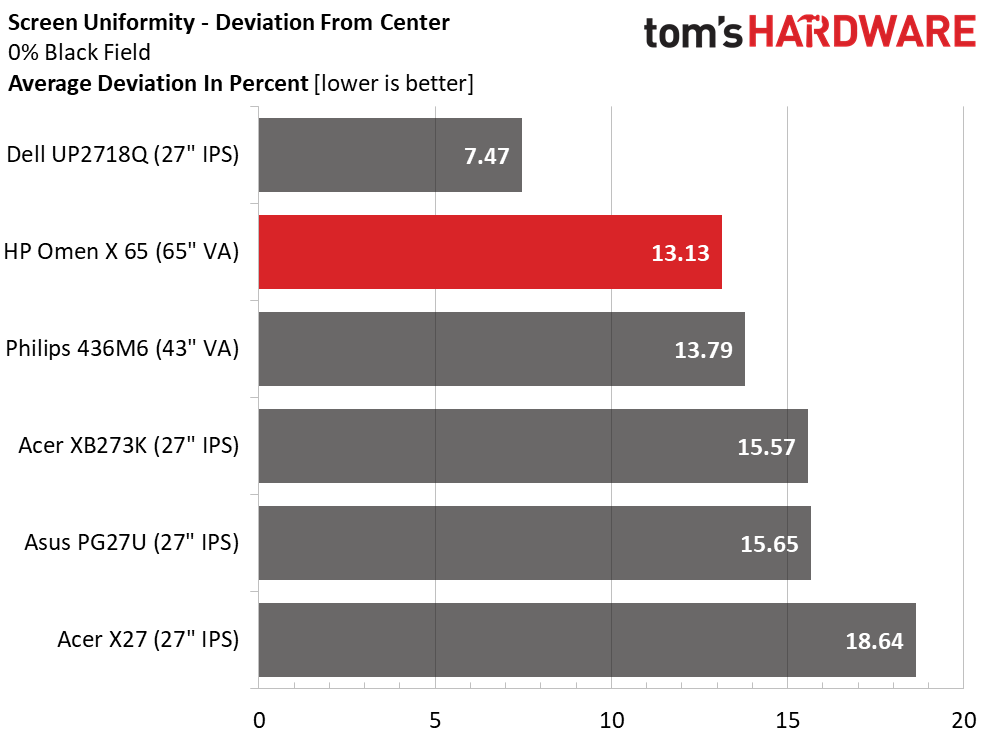HP Omen X 65 Emperium Monitor Review: 65 Inches of Gaming Greatness
Why you can trust Tom's Hardware
Viewing Angles, Uniformity, Response and Lag
Viewing Angles
The Omen X 65 Emperium exhibits off-axis performance typical of VA monitors. At a 45-degree side angle, light output dropped by 40 percent, and color shifted towards red. From the top, detail was slightly hazy, brightness was about 40 percent lower and there was a slight green tint.
But because the screen is so large, you'd have to sit quite far from center to hit the 45-degree viewing angle, given the 5-8-foot viewing distance. From 10 feet, you could comfortably share the screen with three others on a couch.
Screen Uniformity
To learn how we measure screen uniformity, click here.
13.13 percent may not be an impressive black field uniformity score for a PC monitor, but remember that we’re talking about a 65-inch screen here. Most panels this large measure closer to 25 percent on a good day. Every other monitor here is 27 inches, except the 43-inch Philips. There is no doubt that HP is maintaining good quality control for the Omen display. We saw no glow or bleed with all the lights off.
Pixel Response & Input Lag
Click here to read up on our pixel response and input lag testing procedures.


Though our top four screens are the fastest UHD gaming monitors available, they are not quite as quick as lower-resolution monitors like the Alienware AW2518H. The processing overhead involved in moving 8.3 million pixels around cannot be overlooked. That being said, the Omen X 65 Emperium posts some impressive response and lag numbers. There is no ULMB (ultra-low motion blur), but honestly, with an 8ms draw time at 144Hz, we wouldn’t have sacrificed G-Sync to use it anyway.
An overall lag score of 36ms means no one will observe any delay from control inputs. We certainly didn’t. The Omen X 65 Emperium is as quick and responsive as any premium gaming monitor currently available.
Get Tom's Hardware's best news and in-depth reviews, straight to your inbox.
MORE: Best Gaming Monitors
MORE: How We Test Monitors
MORE: All Monitor Content
Current page: Viewing Angles, Uniformity, Response and Lag
Prev Page HDR Performance Next Page Conclusion
Christian Eberle is a Contributing Editor for Tom's Hardware US. He's a veteran reviewer of A/V equipment, specializing in monitors. Christian began his obsession with tech when he built his first PC in 1991, a 286 running DOS 3.0 at a blazing 12MHz. In 2006, he undertook training from the Imaging Science Foundation in video calibration and testing and thus started a passion for precise imaging that persists to this day. He is also a professional musician with a degree from the New England Conservatory as a classical bassoonist which he used to good effect as a performer with the West Point Army Band from 1987 to 2013. He enjoys watching movies and listening to high-end audio in his custom-built home theater and can be seen riding trails near his home on a race-ready ICE VTX recumbent trike. Christian enjoys the endless summer in Florida where he lives with his wife and Chihuahua and plays with orchestras around the state.

